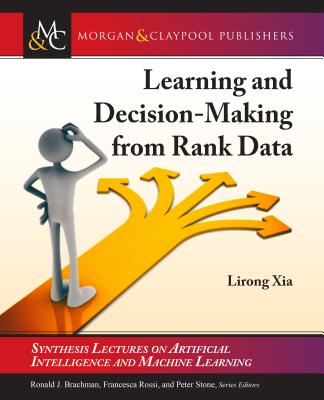Behavioral Mathematics for Game AI (Paperback)
暫譯: 遊戲人工智慧的行為數學 (平裝本)
Dave Mark
- 出版商: Course Technology
- 出版日期: 2009-03-01
- 售價: $1,900
- 貴賓價: 9.5 折 $1,805
- 語言: 英文
- 頁數: 480
- 裝訂: Paperback
- ISBN: 1584506849
- ISBN-13: 9781584506843
-
相關分類:
人工智慧
無法訂購
買這商品的人也買了...
-
 Software Factories: Assembling Applications with Patterns, Models, Frameworks, and Tools (Paperback)
Software Factories: Assembling Applications with Patterns, Models, Frameworks, and Tools (Paperback)$1,620$1,539 -
 Ray Tracing from the Ground Up (Hardcover)
Ray Tracing from the Ground Up (Hardcover)$3,960$3,762 -
 $8253D Game Environments: Create Professional 3D Game Worlds
$8253D Game Environments: Create Professional 3D Game Worlds -
 Oracle 管理藝術-顧問級 DBA 的思維鍛鍊與經驗傳承
Oracle 管理藝術-顧問級 DBA 的思維鍛鍊與經驗傳承$680$578 -
 大話設計模式
大話設計模式$620$527 -
 3D 繪圖程式設計:使用 Direct3D 10/9 與 OpenGL 2.0
3D 繪圖程式設計:使用 Direct3D 10/9 與 OpenGL 2.0$700$553 -
 精通 MFC 視窗程式設計─Visual Studio 2008 版
精通 MFC 視窗程式設計─Visual Studio 2008 版$750$593 -
 iPhone SDK 開發範例大全 (The iPhone Developer's Cookbook: Building Applications with the iPhone SDK)
iPhone SDK 開發範例大全 (The iPhone Developer's Cookbook: Building Applications with the iPhone SDK)$620$527 -
 圖解資料結構
圖解資料結構$380$296 -
 SQL Server 2008 資料庫系統設計與開發實務
SQL Server 2008 資料庫系統設計與開發實務$650$553 -
 全球最強 VMware vSphere 4 企業環境建構
全球最強 VMware vSphere 4 企業環境建構$860$731 -
 Google Android SDK 開發範例大全
Google Android SDK 開發範例大全$750$638 -
 Python 3 技術手冊
Python 3 技術手冊$580$458 -
 GPU Pro: Advanced Rendering Techniques (Hardcover)
GPU Pro: Advanced Rendering Techniques (Hardcover)$6,200$5,890 -
 Google!Android 手機應用程式設計入門, 2/e
Google!Android 手機應用程式設計入門, 2/e$530$199 -
 寫給 SA 的 UML / UseCase 實務手冊
寫給 SA 的 UML / UseCase 實務手冊$580$458 -
 Artificial Intelligence for Games, 2/e (Hardcover)
Artificial Intelligence for Games, 2/e (Hardcover)$3,860$3,667 -
 深入淺出 Android 系統原理及開發要點
深入淺出 Android 系統原理及開發要點$450$351 -
 OpenCL Programming Guide (Paperback)
OpenCL Programming Guide (Paperback)$2,160$2,052 -
 Game Coding Complete, 4/e (Paperback)
Game Coding Complete, 4/e (Paperback)$2,100$1,995 -
 Hacker's Delight, 2/e (Hardcover)
Hacker's Delight, 2/e (Hardcover)$2,350$2,233 -
 GPU Pro 4: Advanced Rendering Techniques (Hardcover)
GPU Pro 4: Advanced Rendering Techniques (Hardcover)$3,500$3,325 -
 Game AI Pro: Collected Wisdom of Game AI Professionals (Hardcover)
Game AI Pro: Collected Wisdom of Game AI Professionals (Hardcover)$3,500$3,325 -
 GPU Pro 5: Advanced Rendering Techniques (Hardcover)
GPU Pro 5: Advanced Rendering Techniques (Hardcover)$4,500$4,275 -
 Game Engine Architecture, 2/e (Hardcover)
Game Engine Architecture, 2/e (Hardcover)$2,980$2,831
商品描述
Human behavior is never an exact science, making the design and programming of artificial intelligence that seeks to replicate human behavior difficult. Usually, the answers cannot be found in sterile algorithms that are often the focus of artificial intelligence programming. However, by analyzing why people behave the way we do, we can break down the process into increasingly smaller components. We can model many of those individual components in the language of logic and mathematics and then reassemble them into larger, more involved decision-making processes. Drawing from classical game theory, "Behavioral Mathematics for Game AI" covers both the psychological foundations of human decisions and the mathematical modeling techniques that AI designers and programmers can use to replicate them. With examples from both real life and game situations, you'll explore topics such as utility, the fallacy of rational behavior, and the inconsistencies and contradictions that human behavior often exhibits. You'll examine various ways of using statistics, formulas, and algorithms to create believable simulations and to model these dynamic, realistic, and interesting behaviors in video games. Finally, you'll be introduced to a number of tools you can use in conjunction with standard AI algorithms to make it easier to utilize the mathematical models.
商品描述(中文翻譯)
人類行為從來不是一門精確的科學,這使得設計和編程旨在複製人類行為的人工智慧變得困難。通常,答案無法在那些常常成為人工智慧編程焦點的無菌算法中找到。然而,通過分析人們為什麼以特定方式行為,我們可以將這一過程分解為越來越小的組件。我們可以用邏輯和數學的語言對許多這些個別組件進行建模,然後將它們重新組合成更大、更複雜的決策過程。
《遊戲人工智慧的行為數學》借鑒了經典博弈論,涵蓋了人類決策的心理學基礎以及人工智慧設計者和程序員可以用來複製這些決策的數學建模技術。通過現實生活和遊戲情境中的例子,您將探索效用、理性行為的謬誤,以及人類行為經常表現出的不一致性和矛盾等主題。您將檢視使用統計、公式和算法創建可信模擬的各種方法,以及如何在視頻遊戲中建模這些動態、真實且有趣的行為。最後,您將接觸到一些工具,這些工具可以與標準的人工智慧算法結合使用,以便更輕鬆地利用數學模型。











